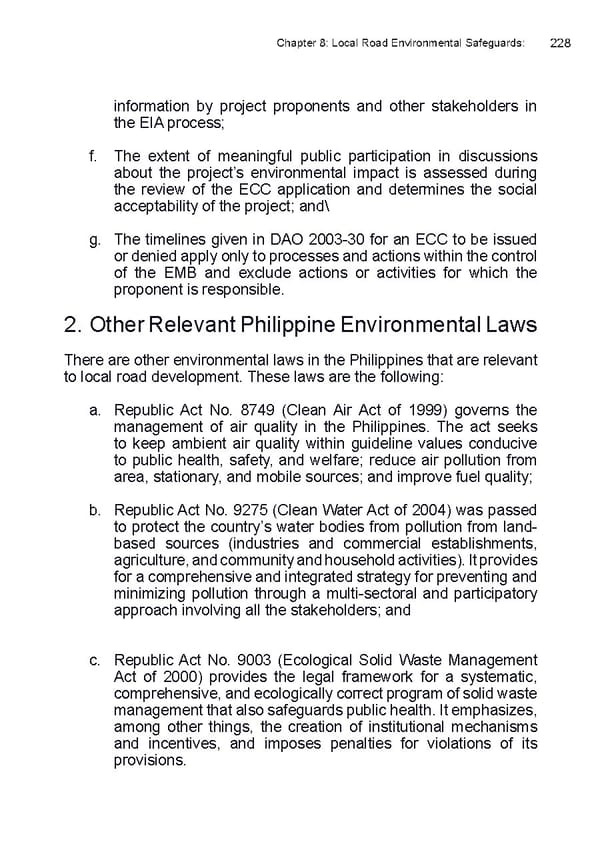Chapter 8: Local Road Environmental Safeguards: 228 information by project proponents and other stakeholders in the EIA process; f. The extent of meaningful public participation in discussions about the project’s environmental impact is assessed during the review of the ECC application and determines the social acceptability of the project; and\ g. The timelines given in DAO 2003-30 for an ECC to be issued or denied apply only to processes and actions within the control of the EMB and exclude actions or activities for which the proponent is responsible. 2. Other Relevant Philippine Environmental Laws There are other environmental laws in the Philippines that are relevant to local road development. These laws are the following: a. Republic Act No. 8749 (Clean Air Act of 1999) governs the management of air quality in the Philippines. The act seeks to keep ambient air quality within guideline values conducive to public health, safety, and welfare; reduce air pollution from area, stationary, and mobile sources; and improve fuel quality; b. Republic Act No. 9275 (Clean Water Act of 2004) was passed to protect the country’s water bodies from pollution from land- based sources (industries and commercial establishments, agriculture, and community and household activities). It provides for a comprehensive and integrated strategy for preventing and minimizing pollution through a multi-sectoral and participatory approach involving all the stakeholders; and c. Republic Act No. 9003 (Ecological Solid Waste Management Act of 2000) provides the legal framework for a systematic, comprehensive, and ecologically correct program of solid waste management that also safeguards public health. It emphasizes, among other things, the creation of institutional mechanisms and incentives, and imposes penalties for violations of its provisions.
 LRM Manual CMGP Page 227 Page 229
LRM Manual CMGP Page 227 Page 229